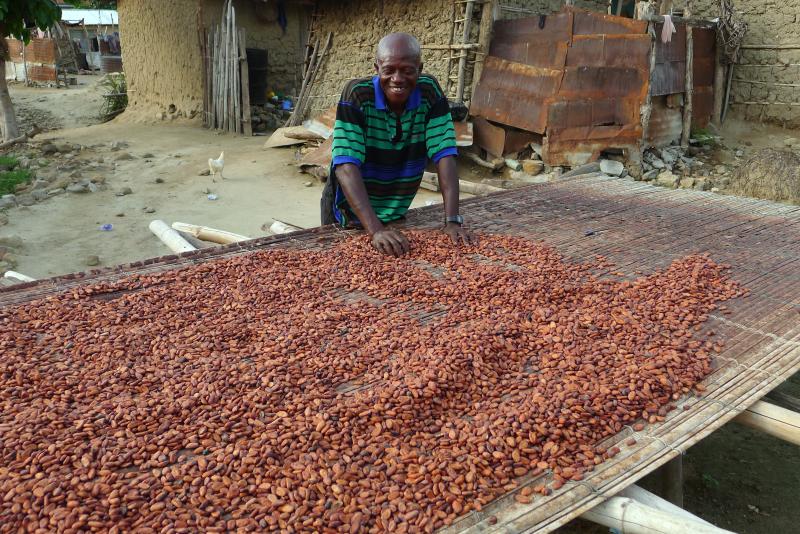Chocolate is a beloved treat enjoyed by people all over the world. However, behind the sweet indulgence lies a darker side: the exploitation of cocoa farmers and the devastating impact of cocoa production on the environment. Fortunately, certification programs such as fair trade, Rainforest Alliance, and UTZ have emerged to promote ethical and sustainable chocolate production. This article will delve into the details of these certification programs, their benefits, and their impact on the chocolate industry.
The Need for Certification Programs
The cocoa industry has a long history of exploitation and inequality, particularly in West Africa, where most cocoa is produced. Cocoa farmers often receive meager prices for their beans, which forces them to live in poverty and perpetuates a cycle of child labor and poor working conditions. Additionally, cocoa farming contributes to deforestation, soil degradation, and other environmental issues. Certification programs provide a way for consumers to support more ethical and sustainable practices and help improve the lives of cocoa farmers and protect the environment.

Fair Trade Certification
Fair-trade is one of the most well-known certification programs, and for a good reason. It guarantees that cocoa farmers receive a reasonable price for their beans and work in safe conditions. Fair-trade also prohibits child labor and ensures farmers can access education and healthcare. By purchasing fair-trade chocolate, consumers can directly contribute to the betterment of cocoa farming communities.

Rainforest Alliance Certification
The Rainforest Alliance certification program focuses on sustainability and environmental protection. It ensures that cocoa is produced in a way that protects forests, wildlife, and waterways. The program also promotes sustainable farming practices that help farmers maintain their livelihoods without damaging the environment. In addition, the Rainforest Alliance allows cocoa farmers access to education and healthcare and supports their social and economic development.

UTZ Certification
UTZ is a certification program that focuses on sustainability and traceability. It guarantees that cocoa is produced using sustainable farming practices and that farmers are paid a fair price. UTZ also ensures that farmers have access to training and resources to help them improve their farming practices and increase their income. UTZ also promotes transparency and accountability in the chocolate industry by providing traceability throughout the supply chain.

The Benefits of Certification Programs
Certification programs offer numerous benefits to both consumers and cocoa farmers. For consumers, purchasing certified chocolate allows them to support ethical and sustainable practices while enjoying their favorite treat. Certification also assures that the chocolate was produced without child labor and in a way that protects the environment.
Certification programs provide cocoa farmers a way to improve their livelihoods and working conditions. By receiving fair prices for their beans and access to education and healthcare, farmers can better support themselves and their families. Additionally, certification programs offer resources and training to help farmers improve their farming practices, which can lead to increased yields and higher incomes.

The Impact of Certification Programs
The impact of certification programs on the chocolate industry has been significant. As more consumers demand ethically and sustainably produced chocolate, more companies prioritize certification. Some large chocolate companies have committed to sourcing 100% of their cocoa from certified sources by a particular year.
Certification programs have also helped reduce child labor’s prevalence in the cocoa industry. Certification programs have raised awareness about the issue by requiring that cocoa be produced without child labor and incentivized farmers to find alternative labor sources.
Conclusion
Certification programs such as fair trade, Rainforest Alliance, and UTZ are crucial in promoting ethical and sustainable chocolate production. By providing a way for consumers to support more ethical and sustainable practices, certification programs help improve the lives of cocoa farmers and protect the environment. As the demand for ethically produced chocolate continues to grow and more companies commit to certification, the impact of these programs will only continue to grow. However, it’s important to note that certification is just one piece of the puzzle. Improving the chocolate industry will require a collaborative effort from all stakeholders, including governments, companies, and consumers.
One way that consumers can make a difference is by being conscious of their purchasing decisions. They can support more ethical and sustainable practices by choosing certified chocolate and other products and message companies that these issues are essential. Consumers can also educate themselves and others about the problems in the chocolate industry and the impact of certification programs.
In conclusion, certification programs have a vital role to play in promoting ethical and sustainable chocolate production. By assuring fair labor practices and environmental protection, these programs offer consumers a way to positively impact the world while enjoying their favorite treats. As more companies commit to certification and consumers demand more ethical and sustainable practices, we can work towards creating a chocolate industry that is fair, sustainable, and just.
FAQ’s
Q: What are certification programs, and how do they promote ethical and sustainable chocolate production?
A: Certification programs such as fair trade, Rainforest Alliance, and UTZ assure that cocoa is produced in a way that protects the environment and ensures reasonable labor practices. They require farmers to use sustainable farming practices, pay fair prices, and provide safe working conditions. By purchasing certified chocolate, consumers can support more ethical and sustainable practices in the chocolate industry.
Q: What are the benefits of certification programs for consumers?
A: Consumers who purchase certified chocolate can enjoy their favorite treat with the knowledge that it was produced without child labor and in a way that protects the environment. Certification also assures that cocoa farmers are paid fair prices and work in safe conditions.
Q: What are the benefits of certification programs for cocoa farmers?
A: Certification programs provide a way for cocoa farmers to improve their livelihoods and working conditions. By receiving fair prices for their beans and access to education and healthcare, farmers can better support themselves and their families. Additionally, certification programs offer resources and training to help farmers improve their farming practices, which can lead to increased yields and higher incomes.
Q: How have certification programs impacted the chocolate industry?
A: Certification programs have helped raise awareness about child labor and environmental protection in the cocoa industry. They have also incentivized more companies to prioritize ethical and sustainable practices and commit to certification. As the demand for ethically produced chocolate continues to grow, the impact of certification programs will only continue to increase.
Q: What can consumers do to support ethical and sustainable chocolate production?
A: Consumers can make a difference by being conscious of their purchasing decisions and choosing certified chocolate and other products. They can also educate themselves and others about the issues in the chocolate industry and the impact of certification programs. By doing so, they can support more ethical and sustainable practices and contribute to a better future for cocoa farmers and the environment.
